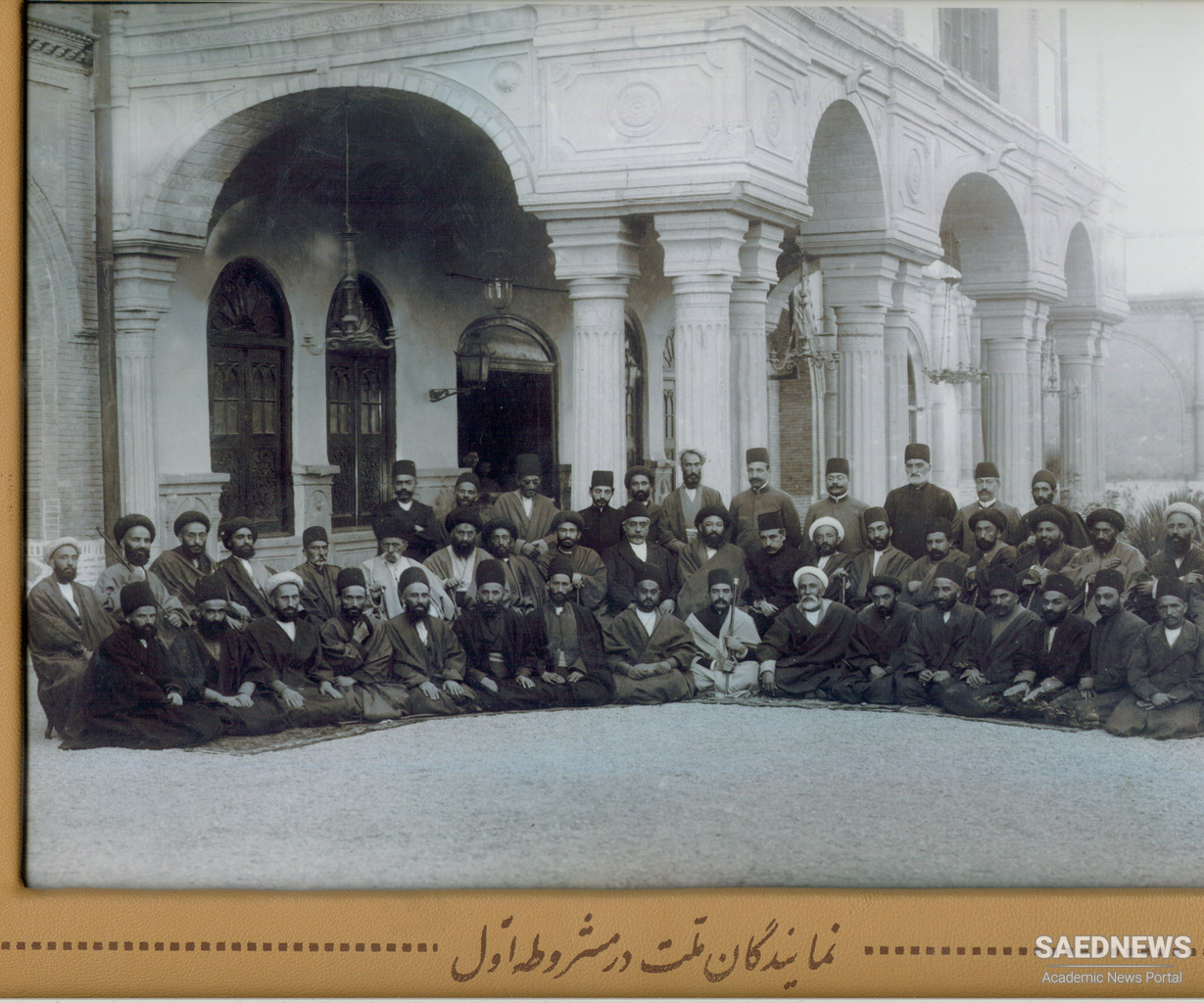Through Tobbaco Movement, by an almost bloodless revolution, the centuries-old absolutism of the Persian monarchs had been legally modified by constitutional forms, imperfect in many respects as they were, and, what was even more important, the people had learned something of their real power and were more determined than ever to save their nation from the straight road to disintegration and decay along which it had been for generations skilfully piloted by its hereditary rulers. The principal modification in the Shah's absolute power obtained by this revolutionary action was the right of the people to have a Medjlis, or national elective assembly, which should have a voice in the selection of ministers and in the framing of laws. After many negotiations and even a second bast, commenced in the British Legation grounds early in September, 1906, the actual elections took place during the first days of October, and on the 7th of that month, without awaiting the arrival of the deputies from the provinces, the first Medjlis was opened at Teheran, and a speech from the throne was read. At the death of Muzaffaru'd-Din Shah, on January 4, 1907, he was succeeded by the Crown Prince, Muhammad Ali Mirza, who had been at Tabriz, governing the rich and important prov ince of Azarbayjan. This infamous individual arrived at Teheran on December 17, 1906, the Shah being very ill, and was crowned on January 19, 1907, having previously pledged him self to observe the constitution and rights granted by his father.Muhammad Ali Shah Qajar was perhaps the most perverted, cowardly, and vice-sodden monster that had disgraced the throne of Persia in many generations. He hated and despised his sub jects from the beginning of his career, and from having a notorious scoundrel for his Russian tutor, he easily became the avowed tool and satrap of the Russian Government and its agent in Persia for stamping out the rights of the people. The reign of Muhammad Ali Shah started out most inauspiciously. He began by ignoring the Medjlis and mutual sus picions and open dissensions became the rule. The Medjlis proposed to exercise some of its hard-won authority, while the Shah with his favorites, thoroughly reactionary ministers and court party, was equally determined to wield all that old arbi trary and cruelly oppressive power for which the House of Qajar has been notorious. He intrigued with Russian emis saries against his own people, and actually contracted with Russia and England for a secret loan of 400,000, to be squan dered by himself, though the arrangement was shortly after wards discovered and balked by the mullahs and the Medjlis (The Strangling of Persia).


 Tobacco Movement the Prologue to Constitutionalism
Tobacco Movement the Prologue to Constitutionalism














































